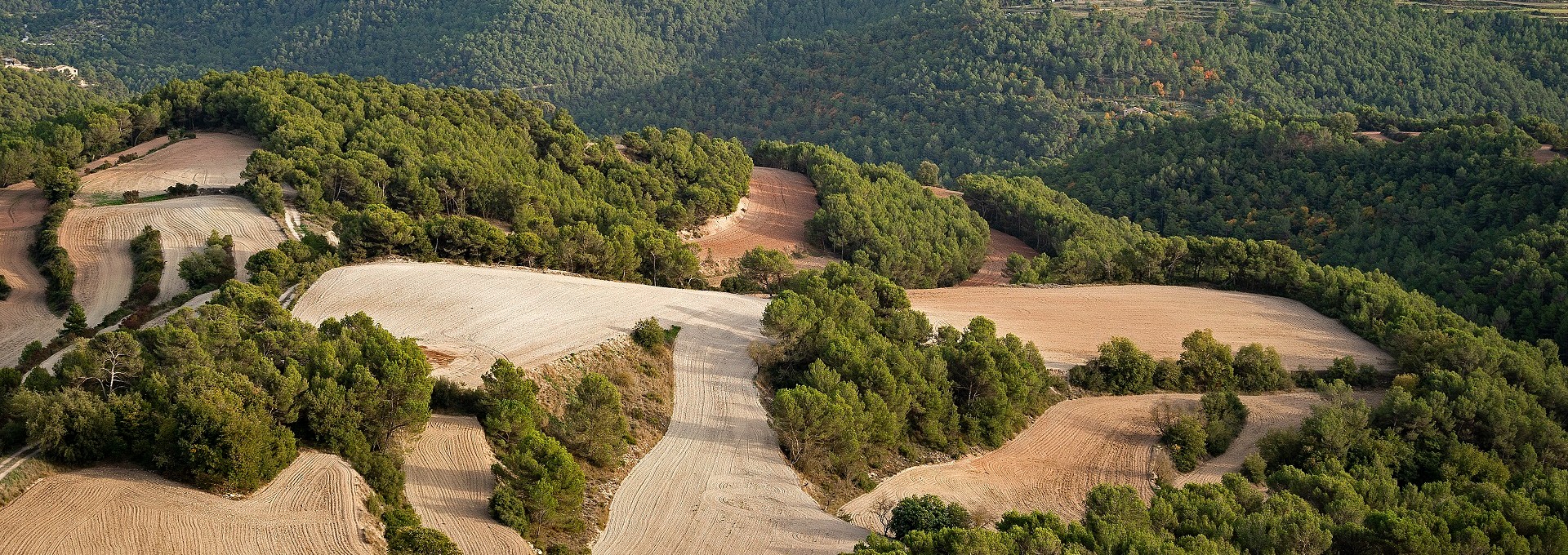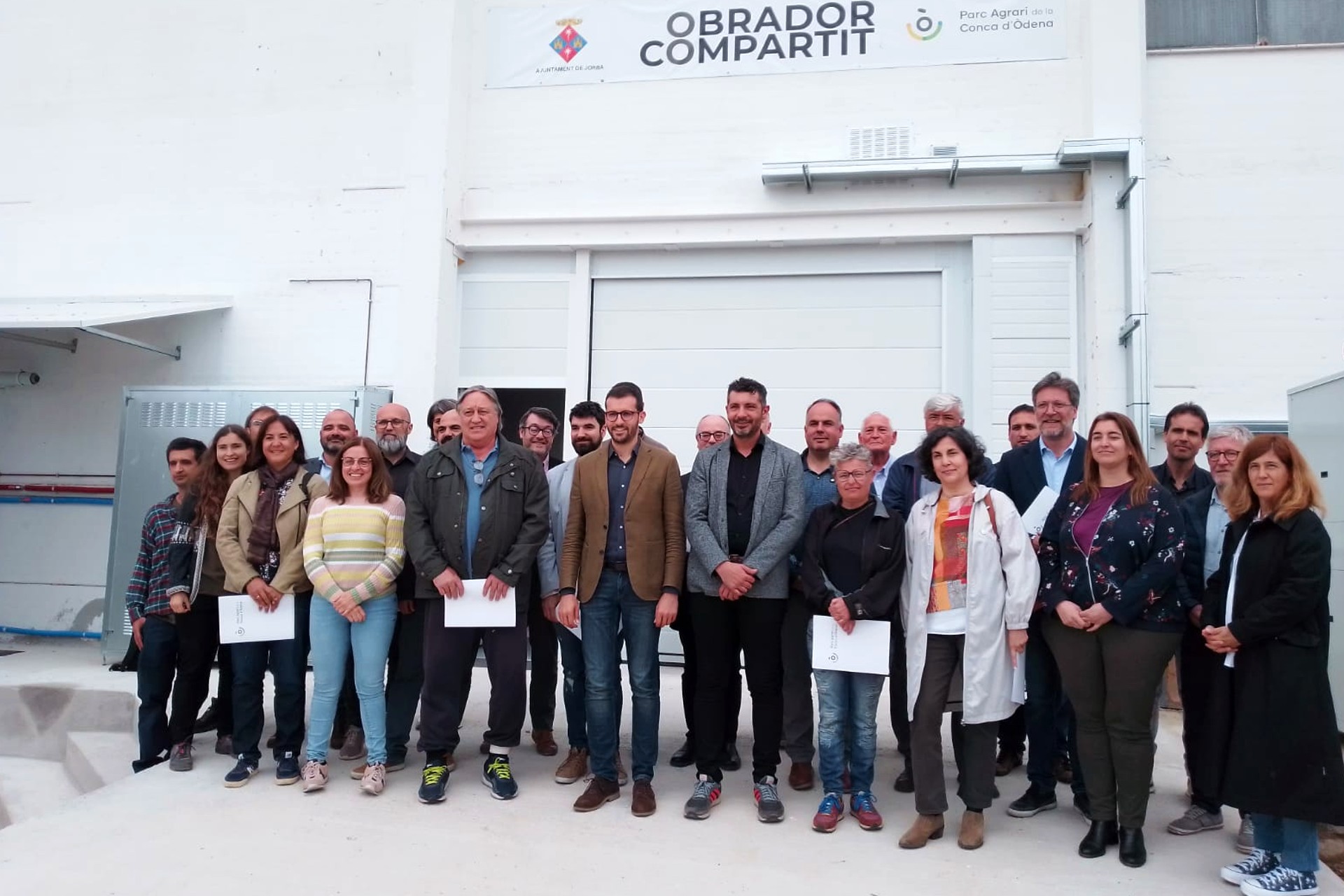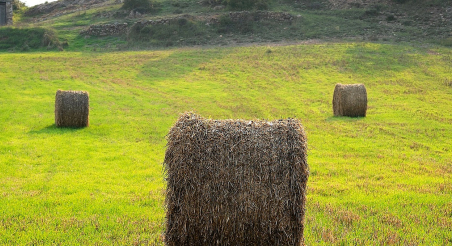Today, the association that will have the responsibility of managing the Odena Basin Agrarian Park (PACO), has been established, an initiative aimed at preserving and enhancing agricultural activity in the region, as well as promoting healthy and sustainable agri-food practices.
The new entity is composed of the Anoia Regional Council, three private entities (the Conca d'Òdena Producers Association, the Trade and Restaurant Association of the Conca d’Òdena Agricultural Park, and the Tourist Promotion Agents Association of the Conca d’Òdena Agricultural Park), and 14 municipalities in the area: Argençola, Capellades, Carme, Castellolí, Copons, Igualada, Jorba, La Pobla de Claramunt, La Torre de Claramunt, Òdena, Orpí, Rubió, Sant Martí de Tous, and Santa Margarida de Montbui. This collaboration between public institutions and local stakeholders is key to achieving the agri-food sustainability of the region.
The event was chaired by David Sànchez, mayor of Jorba, and attended by Jordi Cuadras, vice president of the Anoia Regional Council; Jaume Minguell, head of the Technical Office for Municipal Fire Prevention and Agricultural Development of the Barcelona Provincial Council; and Patrícia Pladevall, head of the Coordination Service of Regional Offices and Territorial Management of the Government of Catalonia. Also present were the mayors of all the municipalities currently part of the Odena Basin Agrarian Park, the Vilanova del Camí Town Council, and representatives of local farmers and agri-food entities, among others.
During the event, the shared processing facility in Jorba was visited, located in a warehouse adjacent to the municipal warehouse facilities. This new space, with more than 400 m2, will be used to produce vegetable and dairy products with ingredients from the Conca d’Òdena. In addition, the founding act of the management association of the PACO was signed, and the contents of the Management and Development Plan of the project were reviewed, detailing the planned actions in the initiative.
The PACO, a reserve of agricultural lands
The Odena Basin Agrarian Park is an agricultural space that is part of the network of six agricultural parks promoted by the Barcelona Provincial Council. Currently, PACO has 6% urbanized territory, 62% forest surface, and almost 32% agricultural surface. The 11,425 hectares of cultivated fields represent an important reserve of lands with agri-food potential.
In the last 60 years, the municipalities that are part of the Odena Basin Agrarian Park have experienced a loss of 4,440 hectares, equivalent to a 28% decrease in their agricultural surface. With the creation of the agricultural park, more than 11,425 hectares of cultivated fields are protected, thus safeguarding local agricultural activity.
The dominant crop in PACO is cereals, which occupy 70% of the agricultural surface of the territory. In addition, other traditional crops that add uniqueness to the area are shell fruits, which represent 3% of the agricultural park, while vineyards and olive groves each have a presence of 2%.
Through various actions and initiatives, the Odena Basin Agrarian Park aims to promote the development of an agri-food model based on quality and proximity, which is resilient to climate change, improves the living and working conditions of the farming community, allows for the sustainable management of the agroforestry mosaic, and makes healthy food accessible to the entire population.
Collaboration and quality at the PACO
The Odena Basin Agrarian Park is a project that was launched in 2019 with the aim of being a tool for transforming the agri-food and territorial model. Currently, it has nearly five hundred producers offering a wide variety of fresh and quality foods, such as fruits, vegetables, cereals, legumes, meat, eggs, honey, or cheese. These products can be purchased through highly diversified proximity sales circuits: they are available at farm shops (both in person and through online sales platforms), agricultural cooperatives, stationary and weekly municipal markets, as well as neighborhood stores. In addition, the agricultural park also organizes educational, cultural, and tourist activities to showcase the value of the natural and rural heritage of the Conca d’Òdena.
For more information about the agricultural parks promoted by the Diputació de Barcelona, please contact Sònia Callau, head of the Agrarian Territorial Directorate and coordinator of the BCN Smart Rural programme.
— BCN Smart Rural Editorial —




